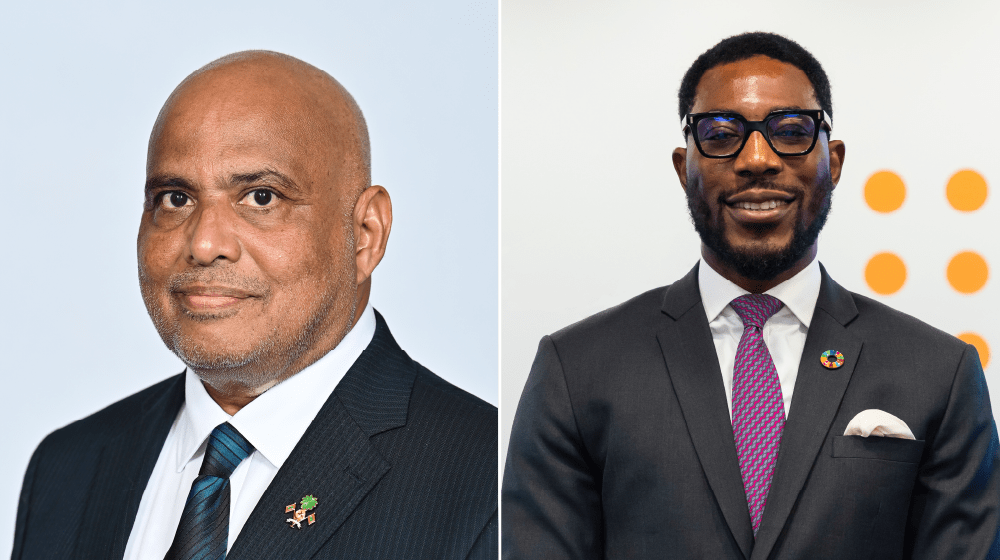World Population day is marked on 11 July across the globe. This year’s theme “Embracing the Power of Inclusive Data Towards a Resilient and Equitable Future for All” highlights the importance of continuing our efforts to create a more equitable world. In the Maldives the population is at an interesting juncture.
The Maldivian population is one of the fastest ageing populations in the region. Currently, one in twenty people are over 65 years old, and this percentage is expected to increase to one in eight within the next 30 years.
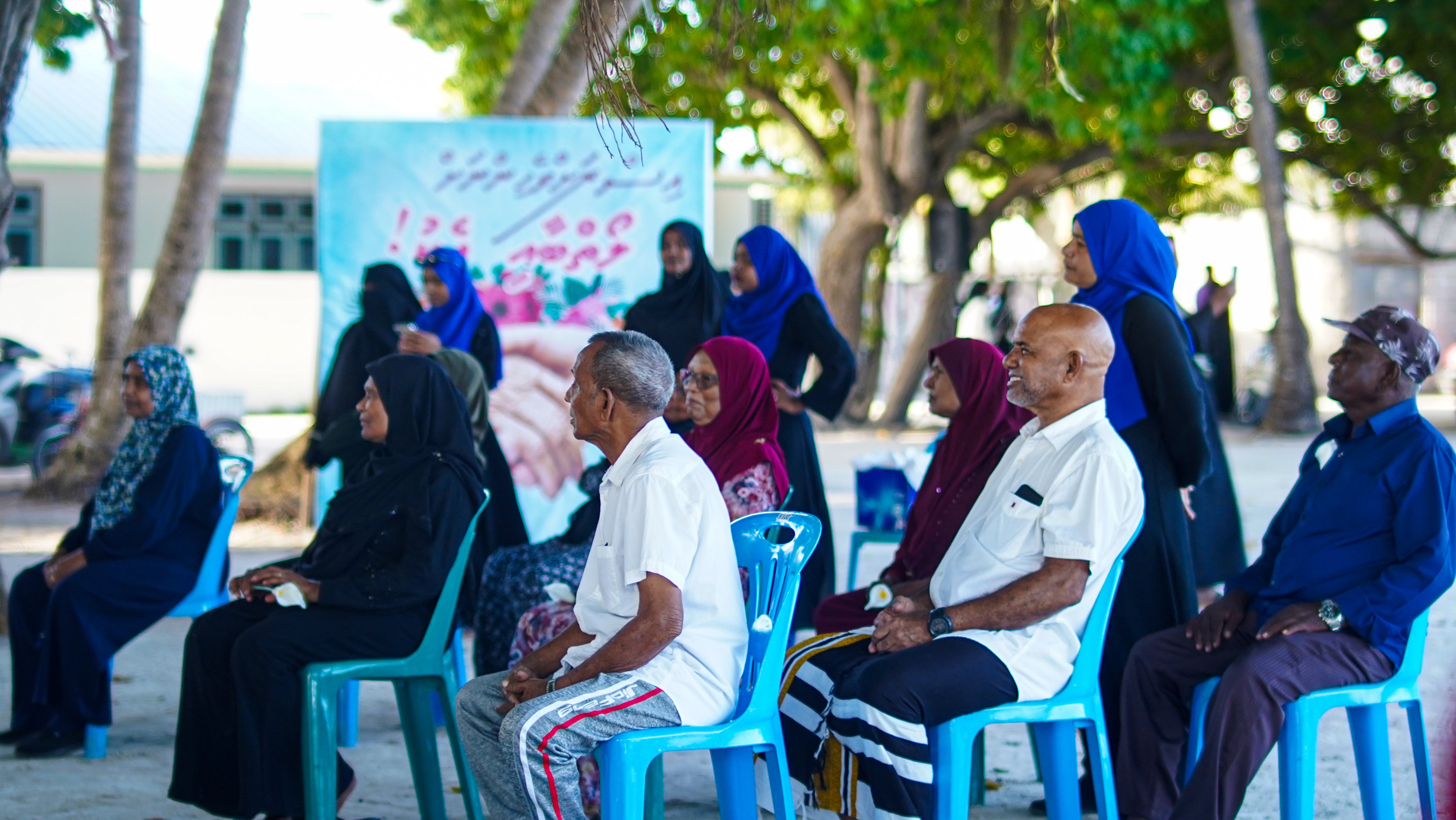
© Sikundi Corporation
The characteristics of the population in the Maldives have changed significantly over the past twenty years. Declining fertility rates to below replacement level and increasing survival rates at older ages have led to population ageing. Life expectancy at birth has risen from 50 in 1990 to 80 in 2022.
Increasingly, people are living in urban centres and smaller households, particularly in Male’. Household structures and relationships play a crucial role in the socio-economic and cultural processes in the Maldives. These relationships significantly impact childbearing, the division of labour, education and labour force participation, migration, healthcare, child-rearing, support network and the transmission of core values and norms across generations.
Internal migration has been widespread, with a significant percentage of the population relocating to the Greater Malé. This migration has led to a shift from extended families to nuclear families, and has contributed to replacement fertility, as well as an increase in single-parent and one-person households. As the population ages, these household characteristics will influence the living arrangements and conditions of older persons.
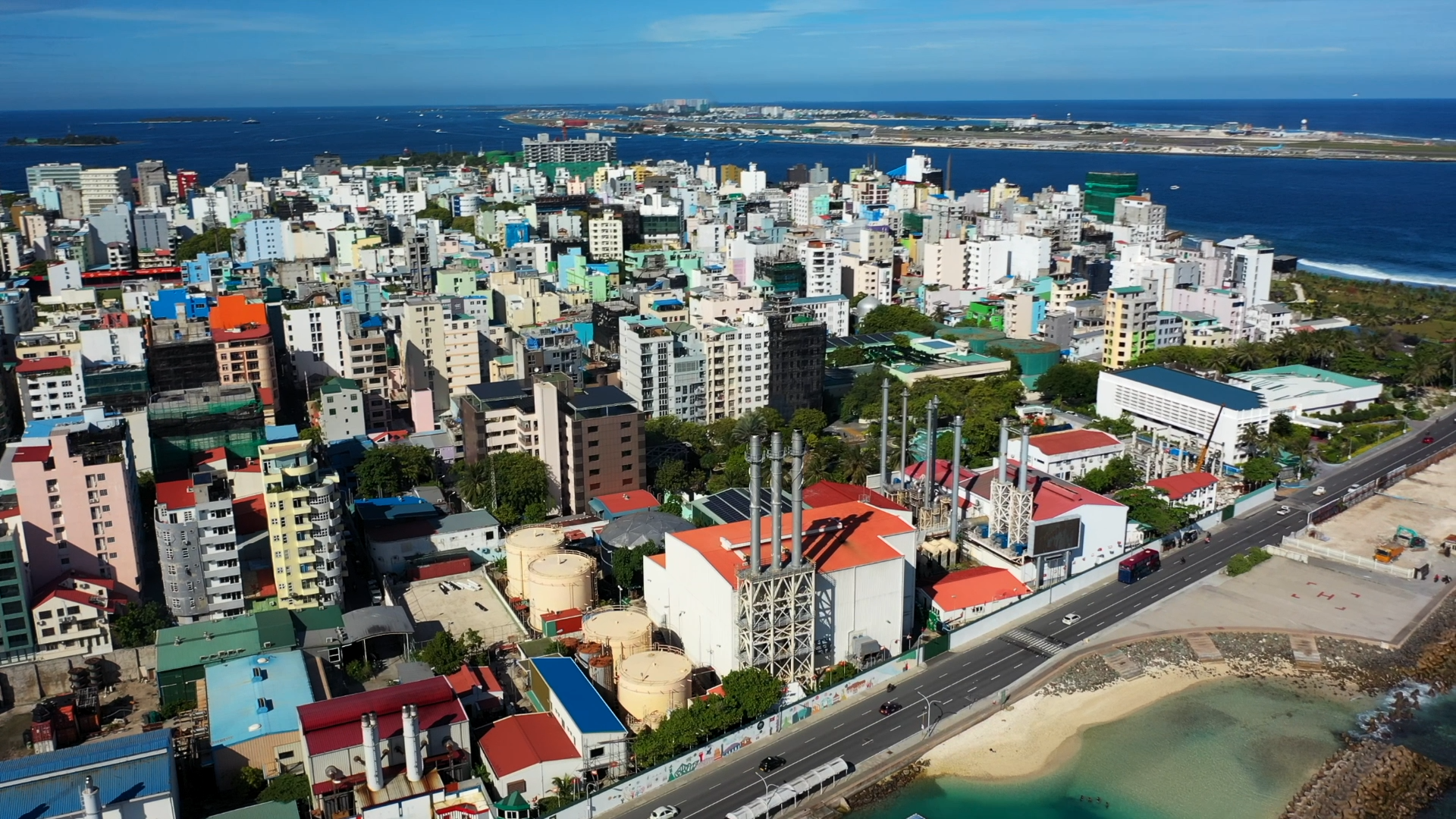
© Sikundi Corporation
The current older population, born in the 1950s post-World War II, experienced improved economic prospects and enhanced social services, including a stronger public sector. In the Maldives, the strengthening of the public health sector has significantly contributed to their well-being. During their formative years, the leading causes of death were communicable diseases, which the government has successfully combated, including polio, measles and syphilis. Today, disease patterns have shifted to non-communicable diseases, with a large portion of the population over 40 on medication for coronary heart disease, hypertension, cancer, and reproductive health issues such as polycystic ovarian syndrome, endometriosis as well as subfertility. These conditions place a considerable strain on the health system, consuming a substantial part of the health expenditure (12% of GDP). With the average person living 80 years now, their health expenditure per capita would be close to MVR 3 million.
The Generation X population will start turning 65 in 2030, followed by the Millennials, who will reach this age after 2050. Census2022 data indicate that the majority of the current older population live in houses or apartments with their spouses and children, with very few living alone. In contrast, many Millennials reside in nuclear families in small urban apartments.
Marriage has been a common life path for the current older population. Senior women had their first marriage on average at 16 years, and their male counterparts at 21 years. Despite the prevalence of marriages and divorces, older people have tended to stay coupled throughout their lives. On the contrary, Millennials are marrying later as they prioritise education and establishing themselves before marriage. A significant percentage of them remain unmarried. Due to the high cost of living and career prospects, many couples have fewer or no children.
Nationally, the Maldives is still within the demographic dividend period, with the working population outnumbering dependents. However, 15 islands already have a mean age above 35, indicating an ageing population. Vaavu Rakeedhoo has the oldest mean age of 54. Aside from Greater Malé, Addu Atoll has the highest number of elderly residents.
According to Census 2022, the largest industry in the Maldives is tourism, employing 22,244 Maldivians with a mean age of 34. However, the proportion of Maldivians working in this industry is only 38% and has started to decline, which prompts the question. Why do young Maldivians find tourism employment unattractive? Each year, 500 graduates complete travel and tourism studies, a subject in which Maldivians excel. Despite this, many opt out of working in the current tourism industry after finishing their tertiary education, as the long hours required are not appealing to Generation Z as they prefer work-life balance.
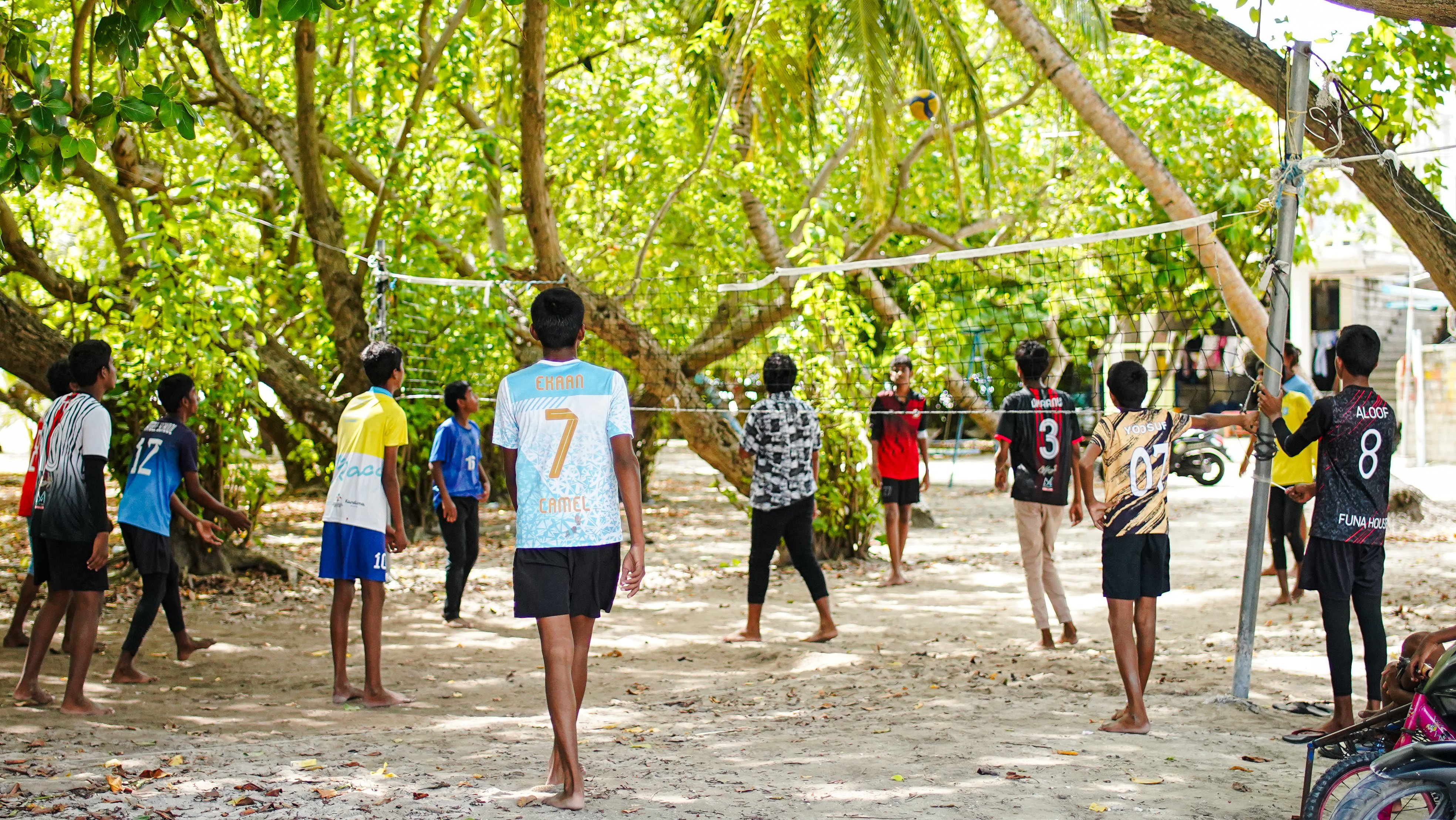
© Sikundi Corporation
This brings up the discussion on the future of work, where the economic sector must evolve to be attractive to the younger population. For example, in the UK, hands-on shift duties often involve a 4-day working week with 4 days off, providing ample time for family and personal life. And in an island nation with a very tech savvy population, work must not necessitate a physical office space, but an environment based in their home where they can live in the vicinity of the extended family.
In other sectors, stressful long working hours and low wages have also driven the Maldivian population out of the workforce, paving the way for international migrants. Minimum wage and employment legislation do not apply to foreign workers. Additionally, the education system is geared toward producing blue-collar workers, with a lack of emphasis on soft skills until later stages of schooling.
Currently, most child and elderly care work is done by women, many of whom are also single mothers. If this trend continues, Generation Alpha will face a significant burden when they reach midlife, as they will need to care for their elderly parents, grandparents, and immediate family members. To help Generation Alpha reach their potential, it is crucial to ensure affordable and accessible housing, economic opportunities, and the healthcare of older parents. Necessary policy reforms are needed to sustain the country's population. This includes public health initiatives encouraging preventative healthcare and healthy ageing could help maintain the elderly's independence for longer.
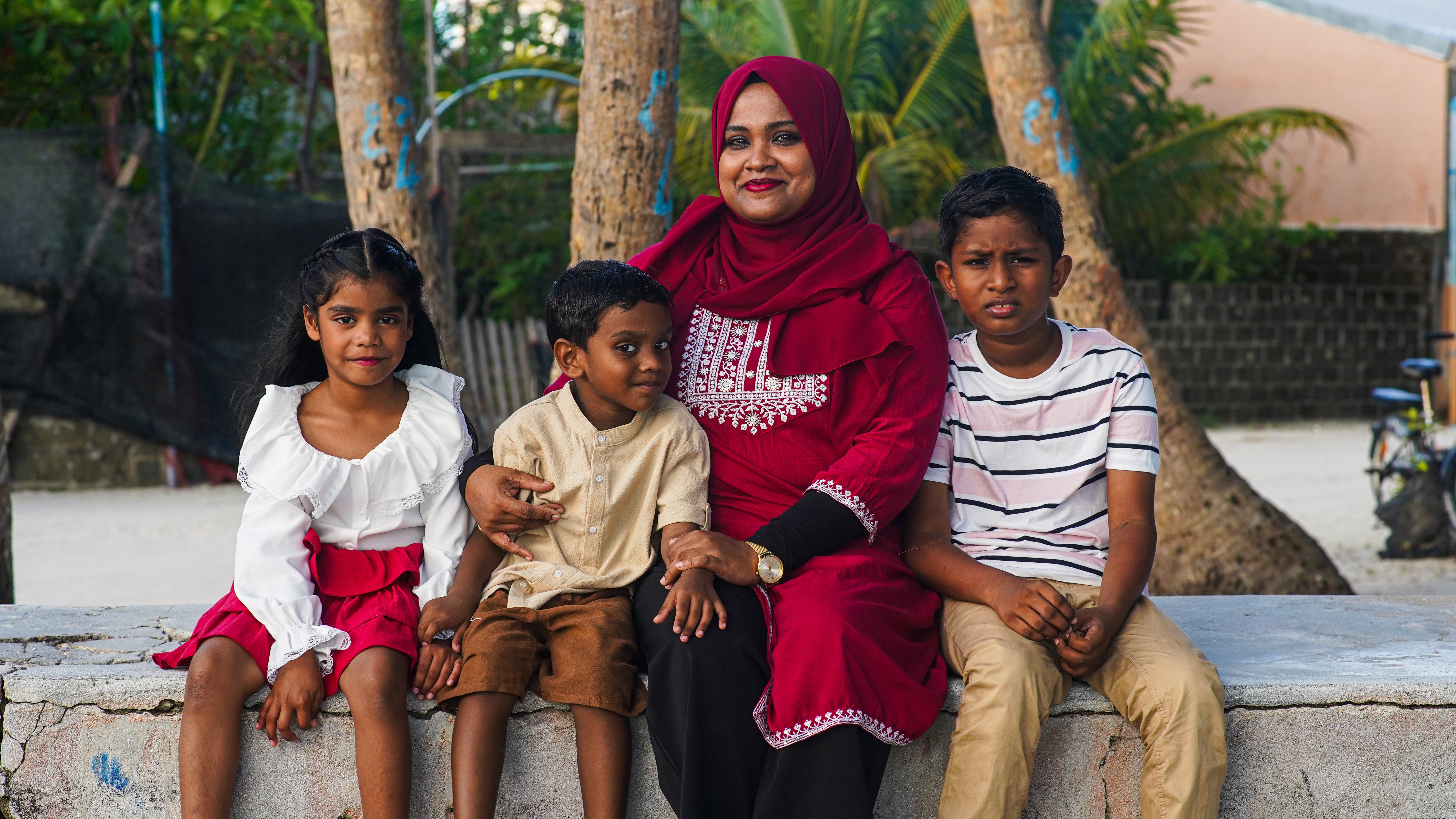
© Sikundi Corporation
Creating family-friendly working environments that cater to childbearing and caregiving roles, offering flexible working arrangements, and providing childcare facilities could encourage higher birth rates. However, this alone may not reverse the declining total fertility rate, as the cost of living in urban settings continues to grow.
International migration has become common in many countries to meet labour demands. In the Maldives, migrant workers fill crucial gaps in the workforce, particularly in industries like tourism, construction, and healthcare. However, their well-being must be taken into consideration with accessibility of social services and protection systems.
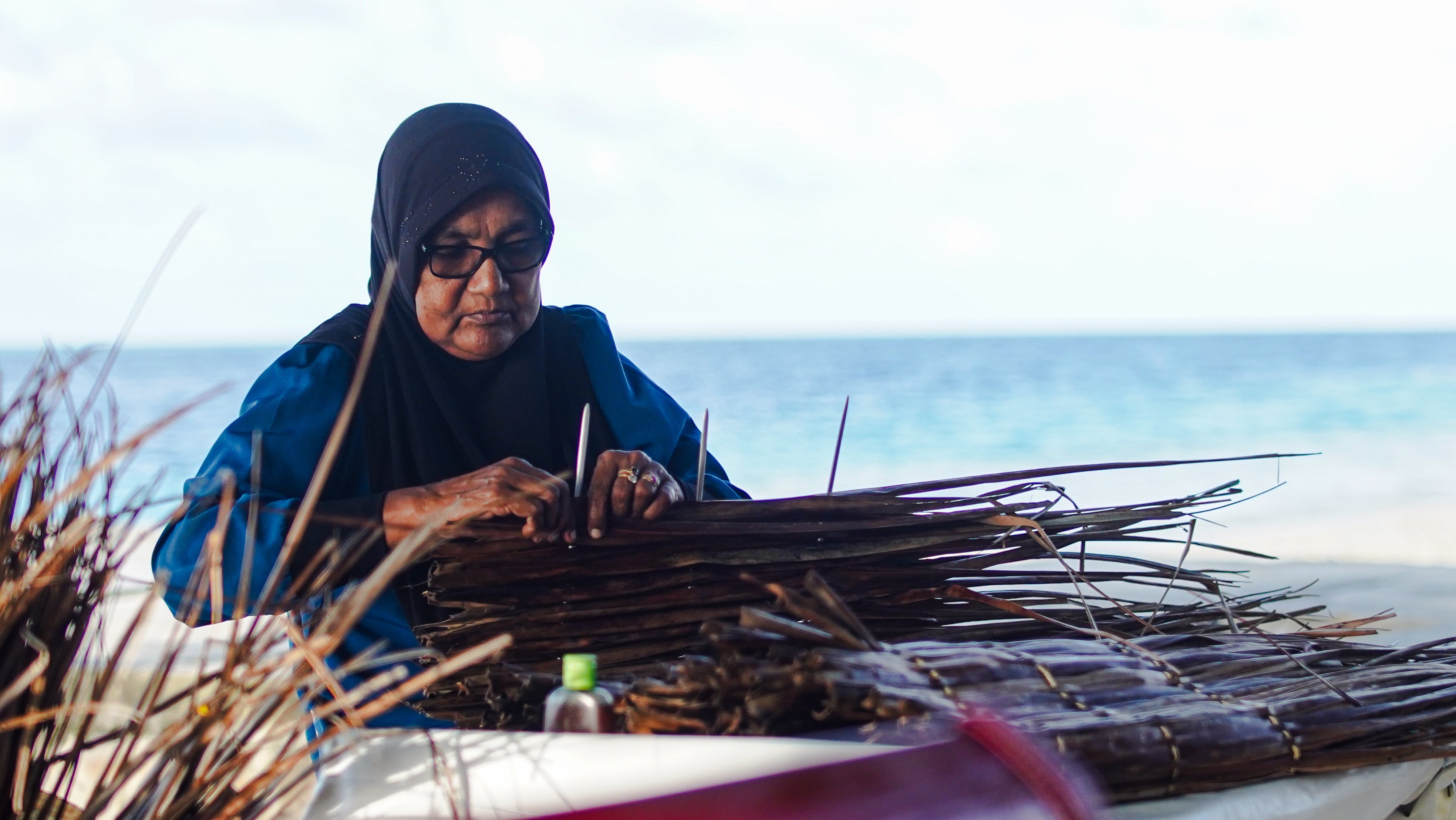
© Sikundi Corporation
Promoting healthy ageing and increasing the retirement age, as seen in Singapore, where housing, public spaces, and food systems support healthy eating, exercise, and intergenerational cohesion, could also be beneficial.
Addressing the challenges and maximising the opportunities of a growing older population will determine whether society can reap the benefits of the "longevity dividend." Affordable housing and easily accessible transportation that encourage ageing in place are essential to maintain independence, facilitate social contacts, and allow older persons to remain active members of society. This is what we call people centred development.
The choices we make today will determine the fate of the future population and the nation as a whole.

